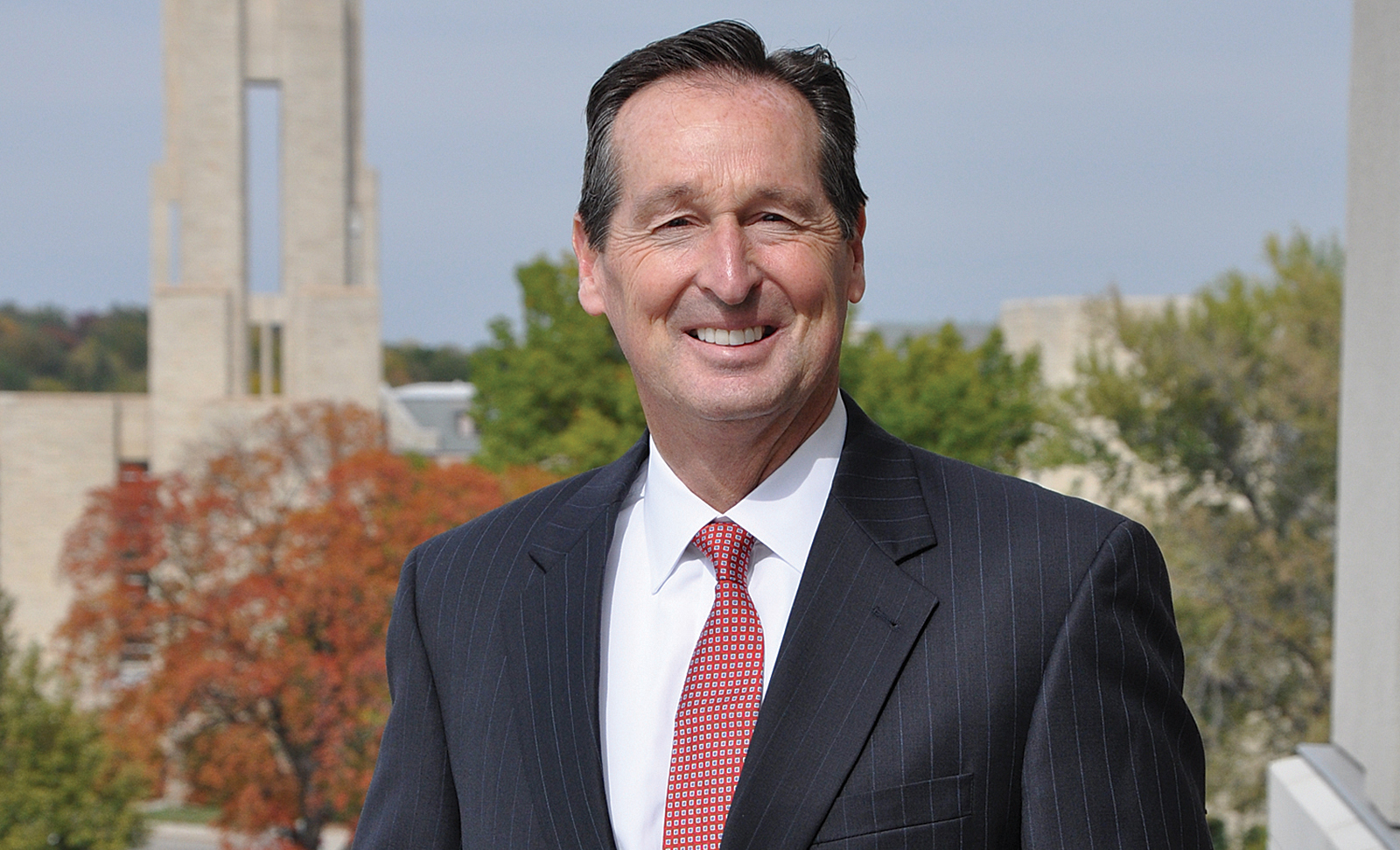
Benedictine College president Stephen D. Minnis participated in a working group associated with the U.S. Conference of Catholic Bishops Committee on Catholic Education on Nov. 11.
Benedictine participates in U.S. bishops’ higher ed working group
ATCHISON — Benedictine College president Stephen D. Minnis was one of only five college presidents invited to participate in a working group associated with the U.S. Conference of Catholic Bishops Committee on Catholic Education on Nov. 11. The group, which also included six bishops, was charged with reviewing Catholic higher education in America based on “Ex Corde Ecclesiae,” a decree issued by Pope John Paul II in 1990. The first meeting was held in conjunction with the USCCB’s general assembly meeting in Baltimore.
“I was blessed to be invited to the meeting,” said Minnis. “Our discussion reminded us all just how important Catholic colleges and universities are. A 2012 Georgetown University study pointed out that only 11 percent of young people today have no religious affiliation when they head to college. By the time they leave, 25 percent are unaffiliated. Catholics lose even more members in college than others do.”
The working group was formed by Bishop Joseph McFadden of Harrisburg, Pa., chair of the Committee on Catholic Education, and included the presidents of Catholic University of America (Washington, D.C.), Loyola University (Chicago), University of Dallas, Neumann University (Aston, Pa.), and St. Bonaventure University (St. Bonaventure, N.Y.), along with Minnis. The group also included the auxiliary bishop of Boston, the archbishop of Portland, Ore., and the bishops of Buffalo, N.Y.; Orlando, Fla.; Trenton, N.J.; and Helena, Mont.
Last year, more than 100 U.S. bishops engaged Catholic university presidents in conversations regarding “Ex Corde Ecclesiae” as part of a 10-year review of the decree. According to Minnis, who met with Archbishop Joseph F. Naumann as part of a review of Benedictine College in 2011, the process asked specific questions: In what ways have the Catholic identity and mission of the institution been clarified and enhanced in the past 10 years? How has communion with the church been strengthened? How has the school incorporated the bishops’ norms?
“The working group is charged with developing best practices to continue the dialogue between bishops and presidents,” said Minnis. “Each member of the group agreed that much progress has been made in Catholic identity. The group determined that mission- based hiring and formation of faculty, staff and trustees were essential. Finally, they agreed that addressing theological and catechetical training is becoming more important for our young people during their college years — and before.”
The group will continue to meet by conference call and yearly at the bishops’ annual meeting.
As an example of the power of following the blueprint laid out by “Ex Corde Ecclesiae,” Minnis talked about the history of Benedictine College since the decree was issued.
“Benedictine College owes much to Pope John Paul II’s document,” he said. “He published it in 1990 — the year of the lowest enrollment in our history at 570 students. The college had been under pressure from many sources to follow a different path. Certain voices argued that a Catholic university could not be academically excellent and faithfully Catholic or that academic freedom demanded that faith be put on a shelf. But we made a conscious decision to support the church’s vision of a Catholic university, and that has made all the difference.”
Since then, Benedictine College has grown to more than 1,700 full-time undergraduates. The school has built nine new residence halls since 2000, just completed a 56,000-square-foot academic center, added a campus in Florence, Italy, and begun majors in international business, finance, engineering and nursing.
“Clearly, students and parents appreciated the direction we took,” said Minnis. “But so did higher-education critics. Since embracing ‘Ex Corde Ecclesiae,’ Benedictine College received national recognition for the first time from U.S. News & World Report [magazine] and Colleges of Distinction, among others.”
Benedictine College has clearly thrived by following the recommendations of the pope and the U.S. bishops.
“Benedictine College alumni will carry the faith ‘from the heart of the church’ into their jobs as engineers, doctors, lawyers, teachers, etc. — and into their families and parishes as well,” said Minnis. “That’s what a Catholic college is for.”






